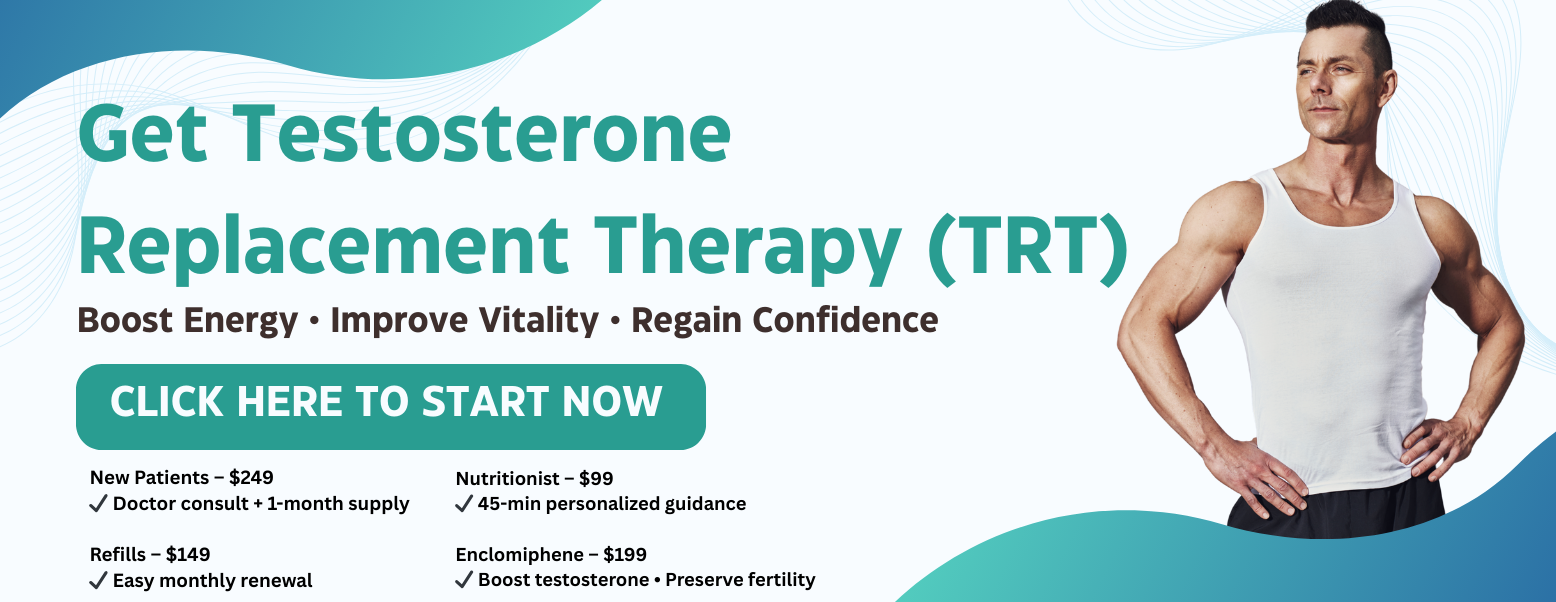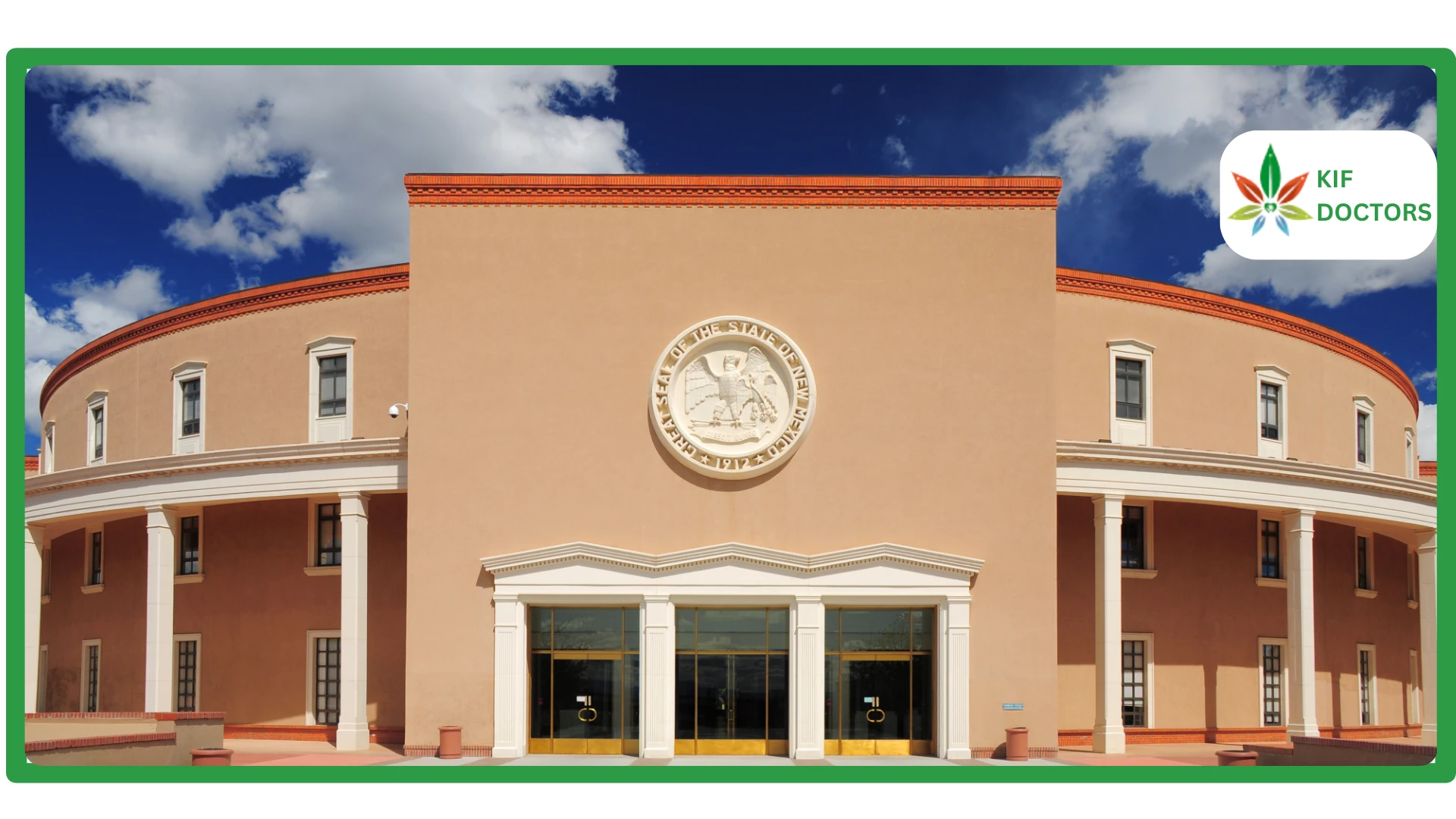More than 13 million American men have low testosterone, but only 5 out of 100 get help for it. Men lose about 1% of their testosterone each year after they turn 30. This causes problems like feeling tired, not wanting sex, gaining weight, and mood changes. Testosterone Replacement Therapy keeps getting more popular in 2025 because doctors proven it works and helps men feel better.
Today's technology makes it easier for men to get safe TRT that fits their body and daily life. Doctors can now help patients from far away using computers and phones.
Don’t Wait, Reclaim Your Vitality – Click here to Book Your TRT Consultation Now!
This complete guide explains TRT, how your body uses it, which men need it, different ways to take it, what dangers exist, and how The KIF makes getting hormone help simple.
Natural Decline of Testosterone
Men's testosterone drops as they get older because of several things:
- Getting older (starts around age 30)
- Stress that lasts a long time
- Not sleeping well
- Being overweight
- Some medicines
Low testosterone doesn't just make your body weaker. It also hurts how you think, feel, and enjoy life.
What Is Testosterone Replacement Therapy (TRT)?
TRT is medical care that adds testosterone to your body when you don't make enough naturally. Doctors use testosterone that works exactly like what your body makes or similar artificial versions to get your hormone levels back to normal.
Doctors give TRT to men who have hypogonadism. This means your body can't make enough testosterone on its own.
How TRT Works: Step-by-Step
1. Diagnosis
TRT always starts with blood tests that check:
- Total Testosterone
- Free Testosterone
- LH/FSH (signals from your brain)
- Estradiol
- CBC (blood cell counts)
- How well your liver and kidneys work
Doctors say you have low testosterone when your levels go under 300 ng/dL and you feel tired, don't want sex, or gain weight.
2. Customized Treatment Plan
Your doctor looks at your health history, blood test results, and symptoms to make a TRT plan just for you. They think about:
- How old you are
- How active you stay
- Health risks you might have
- If you want to have kids
3. Testosterone Administration
You can get testosterone in several ways:
| Method | Description | Common Frequency |
| Injectables | Testosterone cypionate or enanthate shots | Weekly or bi-weekly |
| Topical Gels/Creams | Put on skin daily (shoulders, chest, arms) | Daily |
| Patches | Stick on skin for steady release | Daily |
| Pellets | Put under skin to release slowly over months | Every 3–6 months |
| Oral Pills (newer) | Pills that absorb better (not used much) | Daily |
The KIF focuses on shots combined with monthly computer doctor visits for the best control and watching.
4. Ongoing Monitoring
TRT needs constant attention from doctors. They do blood tests every 3 to 6 months to check:
- Testosterone amounts
- How thick your blood is
- Prostate health markers
- Estrogen amounts
- How you feel overall
Doctors change your treatment based on test results and what you tell them about symptoms.
Benefits of TRT for Men
1. Increased Energy and Vitality
Most men feel much more energetic and strong within weeks of starting TRT.
2. Enhanced Libido and Sexual Performance
TRT brings back your desire for sex and helps fix erection problems caused by low testosterone.
3. Improved Mood and Mental Clarity
Testosterone works with brain chemicals that control mood. TRT often makes depression, worry, and fuzzy thinking better.
4. Better Body Composition
When you exercise right and eat well, TRT helps you:
- Build more muscle
- Lose fat
- Get stronger
5. Stronger Bones and Cardiovascular Support
Testosterone makes bones denser and might help your heart when doctors watch you carefully.
Is TRT Right for You? Key Signs and Symptoms
You might want to try TRT if you have two or more of these problems:
- Always feeling tired
- Not wanting sex
- Can't build muscle easily
- Getting fat around your belly
- Feeling sad or angry
- Trouble focusing
- Can't get good erections
- Sleeping badly
Only blood tests can tell for sure if your testosterone is too low.
Risks and Considerations of TRT
TRT helps many men, but you need to know about possible problems and bad effects:
Cardiovascular Concerns
Some research suggests TRT might cause heart problems, but scientists disagree about this. You need regular check-ups to stay safe.
Prostate Health
TRT might make your prostate bigger and change PSA levels. Men taking TRT should get their prostate checked regularly.
Sleep Apnea
TRT can make sleep breathing problems worse in some men. You need to watch and take care of sleep health during treatment.
Skin Reactions
Creams and gels might irritate your skin or cause pimples. Using them correctly and staying clean helps prevent these problems.
Fertility Considerations
TRT can stop sperm production and might hurt your ability to have kids. Men who want to stay fertile should talk to their doctor about other treatments.
Myths and Misconceptions About TRT
| Myth | Reality |
| TRT is only for bodybuilders | TRT is for men with clinically low testosterone, not for aesthetic purposes |
| It causes prostate cancer | No strong evidence links TRT with prostate cancer when properly monitored |
| TRT makes you infertile permanently | Fertility may decline, but fertility protocols can be used alongside TRT |
| It's a lifelong commitment | Not necessarily—TRT can be paused or stopped under physician guidance |
How Is Testosterone Evolving In 2025?
TRT isn't just for men with very serious hormone problems anymore. In 2025, it's becoming exact medical care that focuses on each patient. New ways to test, help patients through computers, and make custom treatment plans are changing how doctors give, watch, and improve TRT.
Modern men's health needs better medical technology, and TRT is changing to meet these needs.
Here are five big ways TRT is changing men's health this year:
1. Telemedicine-Centered Care Models
Computer-based TRT programs became normal in 2025, not something special. Companies like The KIF create smooth remote care that includes:
- Online doctor visits with licensed physicians
- Medicine delivered to your home
- Computer tools to track symptoms
- Follow-up appointments through video calls
This system removes problems with distance, cost, and scheduling. Thousands of men across the country can get hormone therapy without visiting clinics in person.
2. Personalized Hormone Protocols Using AI and Biomarkers
TRT doesn't use the same treatment for everyone anymore. Smart computer programs and AI help doctors look at more than just total testosterone. They also check:
- Free testosterone
- Estradiol balance
- SHBG levels
- Body chemistry and inflammation markers
- Your genes
Doctors use this information to create dosing plans that fit how your body responds, how you live, and what you want long-term.
3. Combination Therapies for Holistic Results
In 2025, doctors often give TRT with other treatments to get better results and fewer side effects. These include:
- HCG (Human Chorionic Gonadotropin): Keeps fertility and natural testosterone production working
- Anastrozole or Aromatase Inhibitors: Controls how much estrogen your body makes
- Peptide therapies for muscle recovery and fat burning
These combinations work great for men who want to stay fertile, improve their body shape, and feel more stable while taking TRT.
4. Micro-Dosing and Subcutaneous Injection Innovations
Many men in 2025 choose small doses under the skin instead of big shots into muscles. This gives them:
- Steady hormone levels without big ups and downs
- Less chance of side effects
- More comfort and control
This change makes TRT easier to live with and fits better into weekly routines.
5. Enhanced Monitoring and At-Home Lab Testing
TRT in 2025 uses more data than ever before. Men can now track hormone levels, red blood cell counts, and how their body responds from home using:
- Dried blood spot test kits
- Health devices that connect to phone apps
- Doctor dashboards that watch patients from far away
This makes therapy safer with real-time improvements. Doctors can keep hormones balanced continuously with very little risk.
Why Choose The KIF for TRT?
The KIF is changing how men get hormone care with computer-first programs supported by lab tests. At The KIF, we give you:
- Free Consultation – No-cost meeting to understand what you need
- New Patient TRT Program – $249 – Complete diagnosis plus expert TRT start
- Monthly TRT Subscription – $149 – Includes computer doctor visit plus 1-month supply
- Easy refills – Keep getting therapy with simple shipping and doctor access
We mix medical accuracy, computer health convenience, and personal care to make TRT work for your body, your goals, and how you live.
Conclusion
TRT does more than treat a condition. It helps you get back energy, performance, and confidence. If you have signs of low testosterone, don't let age or stress control how good your life feels.
The KIF offers expert programs, clear pricing, and subscription convenience. We help men take control of their hormone health safely and for the long term.
Start Today. Go to thekif.com/TRT and take the first step toward feeling strong and healthy in 2025.
Meta Description (SEO optimized, under 160 characters): Discover how Testosterone Replacement Therapy (TRT) works, its benefits, risks, and how The KIF offers expert, modern, and accessible care in 2025.
FAQs
1. Is TRT Safe For Long-Term Use?
Yes, TRT is usually safe when good doctors watch you. Using it for many years needs regular blood tests to check testosterone levels, red blood cell count, and PSA levels. Clinics like The KIF give you steady medical supervision to make sure treatment stays safe and works well over time.
2. How Long Does It Take For TRT To Show Results?
Most men start feeling better in sex drive, mood, and energy within 3 to 6 weeks. Body changes like more muscle and less fat usually happen over 3 to 6 months. All benefits, including stronger bones, can take up to a year.
3. Can TRT Help With Depression And Mental Fog?
Yes. Many men feel happier, less worried, and think more clearly after starting TRT. Testosterone affects brain chemicals like dopamine and serotonin that control emotions and thinking.
4. Will TRT Affect My Fertility?
TRT can reduce sperm production, especially when used without fertility-helping medicines. Men who want to have kids should talk about using HCG with TRT to help keep fertility. The KIF doctors give personal advice based on your fertility goals.
5. Can I Stop TRT Once I Start It?
Yes, but stopping TRT suddenly can bring back low testosterone symptoms. A doctor should help you slowly reduce the dose and give supporting therapy. You should always talk to your healthcare provider before pausing or ending TRT.
 Since 2021, Kif offers a streamlined platform to get a medical marijuana card online. We have served more than 45K patients across the United States. Sign Up Now to get the right to use medical cannabis for your health condition without any delay.
Since 2021, Kif offers a streamlined platform to get a medical marijuana card online. We have served more than 45K patients across the United States. Sign Up Now to get the right to use medical cannabis for your health condition without any delay.
























